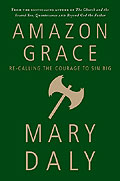In the November midterm elections, I hope Democrats can capitalize on the war against the middle-class. If you're a millionaire, you probably love Bushian voodoo economics. However, Republicans have failed as stewards of the economy for the overwhelming majority of Americans (with emphasis):
With the economy beginning to slow, the current expansion has a chance to become the first sustained period of economic growth since World War II that fails to offer a prolonged increase in real wages for most workers.
[..]
The median hourly wage for American workers has declined 2 percent since 2003, after factoring in inflation. The drop has been especially notable, economists say, because productivity — the amount that an average worker produces in an hour and the basic wellspring of a nation’s living standards — has risen steadily over the same period.
As a result, wages and salaries now make up the lowest share of the nation’s gross domestic product since the government began recording the data in 1947, while corporate profits have climbed to their highest share since the 1960’s. UBS, the investment bank, recently described the current period as “the golden era of profitability.”
[..]
Economists offer various reasons for the stagnation of wages. Although the economy continues to add jobs, global trade, immigration, layoffs and technology — as well as the insecurity caused by them — appear to have eroded workers’ bargaining power.
Trade unions are much weaker than they once were, while the buying power of the minimum wage is at a 50-year low. And health care is far more expensive than it was a decade ago, causing companies to spend more on benefits at the expense of wages.
Together, these forces have caused a growing share of the economy to go to companies instead of workers’ paychecks. In the first quarter of 2006, wages and salaries represented 45 percent of gross domestic product, down from almost 50 percent in the first quarter of 2001 and a record 53.6 percent in the first quarter of 1970, according to the Commerce Department. Each percentage point now equals about $132 billion.
Total employee compensation — wages plus benefits — has fared a little better. Its share was briefly lower than its current level of 56.1 percent in the mid-1990’s and otherwise has not been so low since 1966.
Over the last year, the value of employee benefits has risen only 3.4 percent, while inflation has exceeded 4 percent, according to the Labor Department.
In Europe and Japan, the profit share of economic output is also at or near record levels, noted Larry Hatheway, chief economist for UBS Investment Bank, who said that this highlighted the pressures of globalization on wages. Many Americans, be they apparel workers or software programmers, are facing more comptition from China and India.
In another recent report on the boom in profits, economists at Goldman Sachs wrote, “The most important contributor to higher profit margins over the past five years has been a decline in labor’s share of national income.” Low interest rates and the moderate cost of capital goods, like computers, have also played a role, though economists note that an economic slowdown could hurt profits in coming months.
For most of the last century, wages and productivity — the key measure of the economy’s efficiency — have risen together, increasing rapidly through the 1950’s and 60’s and far more slowly in the 1970’s and 80’s.
But in recent years, the productivity gains have continued while the pay increases have not kept up. Worker productivity rose 16.6 percent from 2000 to 2005, while total compensation for the median worker rose 7.2 percent, according to Labor Department statistics analyzed by the Economic Policy Institute, a liberal research group. Benefits accounted for most of the increase.
“If I had to sum it up,” said Jared Bernstein, a senior economist at the institute, “it comes down to bargaining power and the lack of ability of many in the work force to claim their fair share of growth.”
Nominal wages have accelerated in the last year, but the spike in oil costs has eaten up the gains. Now the job market appears to be weakening, after a protracted series of interest-rate increases by the Federal Reserve.
Unless these trends reverse, the current expansion may lack even an extended period of modest wage growth like one that occurred in the mid-1980’s.
The most recent recession ended in late 2001. Hourly wages continued to rise in 2002 and peaked in early 2003, largely on the lingering strength of the 1990’s boom.
Average family income, adjusted for inflation, has continued to advance at a good clip, a fact Mr. Bush has cited when speaking about the economy. But these gains are a result mainly of increases at the top of the income spectrum that pull up the overall numbers. Even for workers at the 90th percentile of earners — making about $80,000 a year — inflation has outpaced their pay increases over the last three years, according to the Labor Department.
“There are two economies out there,” Mr. Cook, the political analyst, said. “One has been just white hot, going great guns. Those are the people who have benefited from globalization, technology, greater productivity and higher corporate earnings.
“And then there’s the working stiffs,’’ he added, “who just don’t feel like they’re getting ahead despite the fact that they’re working very hard. And there are a lot more people in that group than the other group.”
In 2004, the top 1 percent of earners — a group that includes many chief executives — received 11.2 percent of all wage income, up from 8.7 percent a decade earlier and less than 6 percent three decades ago, according to Emmanuel Saez and Thomas Piketty, economists who analyzed the tax data.Yeah, folks we turned the corner headed toward a redux of the Gilded Age. Middle-class workers must fend for themselves--YOYO Republican style.
Now for a bit of propaganda from the right-wing side:
Republicans counter that the tax cuts passed during Mr. Bush’s first term helped lifted the economy out of recession. Unless the cuts are extended, a move many Democrats oppose, the economy will suffer, and so will wages, Republicans say.Oh, sure. The Republican cult of corruption has a vested interest in keeping the gravy train rollin' via the top 1-percent-ers. Republicans have been scamming the public by advertising that tax cuts would pay for themselves, another propaganda ploy to tamp down objections to Bushian voodoo economics. How come Republicans aren't fessin' up to the facts? As Dana Milbank revealed, "groups such as the Congressional Budget Office have reported that the Bush tax cuts have shifted the tax burden from the wealthy to the middle class."
Of course, wages will suffer. But whose wages? CEOs? As if middle-class earnings haven't already been strangled! The Bush Administration and congressional Republicans put a choke hold on a minimum wage increase, attacked overtime pay, eroded working class jobs with outsourcing, lax immigration, you name it. Corporate masters have been handed a carte blanche billy club to bludgeon labor costs sending jobs to cheap labor markets overseas, kicking pension plans to the curb, cutting health care benefits, and to gouge consumers by goosing prescription drugs into the stratosphere, deriving historical profits on oil and gasoline. In the "golden era of profitability," who's your daddy, Mr. CEO? Bush and his Rubber-stamp Republicans are. Whose side were Republicans on when Bush's prescription drug bill prohibited government from securing the most competitive drug prices possible? And who handed out billions of dollars to Big Pharma, corporate welfare subsidized by American taxpayers? As far as the economy's alleged lift, how much ignition was gained from big federal government borrow-and-spending courtesy Republicans and Bush? War profiteers have nearly printed money for themselves with no-bid contracts and negligible accountability. You've got to appreciate real con man genius: The tab for Bush comes after he leaves office brought to you by congressional Republicans who stamped every appropriation with a crooked smile.
So naturally, Republicans never met a Big Lie they didn't like. Rally the troops quick before Americans catch on to dubious economic flim-flammery:
But in a sign that Republicans may be growing concerned about the public’s mood, the new Treasury secretary, Henry M. Paulson Jr., adopted a somewhat different tone from Mr. Bush in his first major speech, delivered early this month.
“Many aren’t seeing significant increases in their take-home pay,” Mr. Paulson said. “Their increases in wages are being eaten up by high energy prices and rising health care costs, among others.”
At the same time, he said that the Bush administration was not responsible for the situation, pointing out that inequality had been increasing for many years. “It is neither fair nor useful,” Mr. Paulson said, “to blame any political party.”Ha! Fair? How fair is it to have had a Clinton budget surplus obliterated by Republicans who campaigned as fiscal conservatives? Give me a break. Pull out the miniature violin quartet and play Paulson a tune. Go cry me a river and then clean up the mess Republicans have made. Better yet, let Democrats clean up the mess. They know how to use a mop and a broom in understanding America's working class.























|